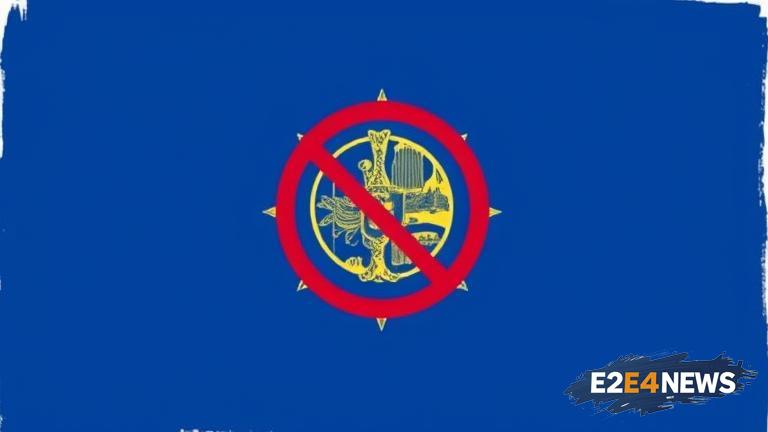The Trump administration has given the green light to Oklahoma’s request to restrict certain food items from the Supplemental Nutrition Assistance Program (SNAP), a move that has sparked intense debate over food accessibility, nutrition, and government intervention. The decision, announced recently, allows Oklahoma to remove foods deemed ‘unhealthy’ or ‘luxurious’ from the list of eligible items that can be purchased using SNAP benefits. Proponents of the move argue that it will encourage healthier eating habits among low-income individuals and families, while critics contend that it will unfairly restrict access to food options for vulnerable populations. The USDA’s approval of Oklahoma’s request marks a significant shift in the administration’s approach to SNAP, which has traditionally been designed to provide assistance to those in need without imposing strict dietary restrictions. Oklahoma’s proposal, which was submitted to the USDA earlier this year, sought to remove foods such as lobster, steak, and other high-end meats, as well as certain types of junk food and sugary snacks. The state argued that these items were not essential to a healthy diet and that restricting them would help promote better nutrition among SNAP recipients. However, opponents of the plan argue that it will disproportionately affect low-income communities, which often have limited access to healthy food options and rely on SNAP benefits to purchase basic necessities. They also point out that the proposal fails to take into account the complexities of food insecurity and the diverse dietary needs of different populations. Furthermore, critics argue that the move is a form of ‘food shaming’ that stigmatizes certain types of food and reinforces negative stereotypes about low-income individuals and their eating habits. The USDA’s approval of Oklahoma’s request has also raised concerns about the potential impact on local food retailers, who may be forced to adapt to new regulations and restrictions on the types of products they can sell to SNAP recipients. In response to the decision, some retailers have expressed concerns about the potential loss of business and the challenges of implementing the new restrictions. Meanwhile, anti-hunger advocates and social justice organizations have vowed to fight the decision, arguing that it will exacerbate food insecurity and perpetuate health disparities in low-income communities. The controversy surrounding Oklahoma’s SNAP restrictions has also sparked a broader debate about the role of government in regulating food choices and the balance between promoting public health and respecting individual autonomy. As the issue continues to unfold, it remains to be seen how the new restrictions will be implemented and what impact they will have on SNAP recipients and local communities. The USDA’s approval of Oklahoma’s request has set a precedent for other states to follow suit, and it is likely that similar proposals will be introduced in the coming months. Ultimately, the decision highlights the need for a more nuanced and comprehensive approach to addressing food insecurity and promoting healthy eating habits, one that takes into account the complex needs and circumstances of different populations. The Trump administration’s approval of Oklahoma’s request has been seen as a victory for proponents of stricter SNAP regulations, but it has also sparked widespread criticism and concern about the potential consequences for low-income individuals and families. As the debate continues to rage on, it is clear that the issue of SNAP restrictions will remain a contentious and highly politicized topic in the months and years to come. The decision has also raised questions about the potential impact on food banks and other organizations that provide food assistance to those in need. Some have argued that the restrictions will lead to an increase in food bank usage, as individuals and families seek alternative sources of food assistance. Others have pointed out that the restrictions will disproportionately affect certain populations, such as the elderly and people with disabilities, who may have limited access to healthy food options. The controversy surrounding Oklahoma’s SNAP restrictions has also highlighted the need for greater transparency and accountability in the administration of SNAP benefits. Some have argued that the USDA’s approval of Oklahoma’s request was made without sufficient consultation with stakeholders or consideration of the potential consequences. As the issue continues to unfold, it is likely that there will be increased scrutiny of the USDA’s decision-making process and the impact of the new restrictions on SNAP recipients and local communities.





